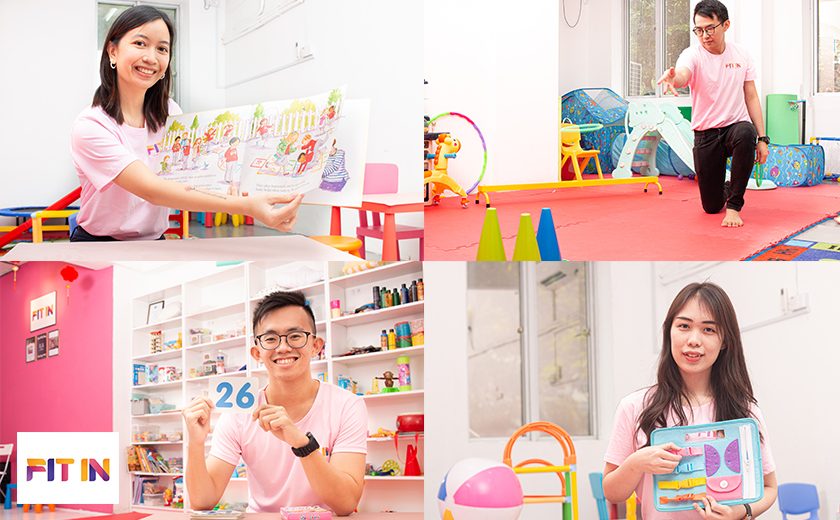When a child has behavioral issues or learning disabilities, it falls onto the parents to be responsible for ensuring that their child receives proper assessment, followed by appropriate treatment that will allow the child to live a normal, healthy and happy life alongside his family and peers.
As this is directly related to the health of the child’s mind, the earlier an issue is detected and addressed, the better it will be for the child’s future. Confident and experienced therapist will be of utmost help, for they will be able to carry out the best and most suitable methods that will help a child to cope with his or her disabilities and generally fare better as well as experience a more successful outcome.


When a child need help
There are many cases in life when a child may not be mentally developing in a proper way. It could be caused by a number of reasons, Autism Spectrum Disorder (ASD) being the most common one. Other cases may include speech delay; dyslexia; Asperger Syndrome (AS); or even Attention Deficit Hyperactivity Disorder ADHD, among others.
When a child is between 3-5 years of age, parents should be able to detect if there are any developmental issues that need to be addressed immediately, for they could be linked to any of the above mentioned conditions. The alarm bells or clues to take action include: when a child avoids eye contact; when speech and communication skills is delayed or impaired compared to peers; when a child has a very narrow range of focus or interests; when there is abnormal repetitive actions; when a child does not respond to their name being called; when there is are obvious memory issues and short attention span; etc.


FIT IN: Modern ABA for the unique learning needs of a child
FIT IN Child Development Centre has successfully helped children age 2-17 to achieve a normal, healthy life. It offers an Applied Behaviour Analysis (ABA) Program with a unique two therapists for one child approach, in a Natural Environment Teaching (NET). The program has been successful in helping many children catch up in their respective development milestones. The caveat however, is to detect a possible learning or behavioral issue as early as possible, and that can be done through an assessment carried out at the centre.
ABA, the gold standard treatment for autism, is a treatment that is based on behaviourist theories which states that desired behaviours can be taught through a system of rewards and consequences. ABA also incorporates Speech & Occupational Therapies, and it acts as a stepping stone before starting on other therapies.
Occupational Therapy is aimed at supporting the development of a child’s fine and gross motor skills, physical activities and body coordination needed to function independently daily. A child will need to undergo this therapy if he or she finds it challenging to hold a pencil, or, focus on a task. Speech therapy on the other hand will help if a child has speech and language disorder. It will help to improve their fluency, articulation and resonance, and in putting words together to express themselves effectively.



The FIT IN difference for the outcome parents hope to achieve
The unique ABA Program offered at FIT IN with two therapists for one child approach has been proven to reap positive results in a child’s language and communication skills; attention; focus; memory; social skills as well as academics.
This FIT IN ABA Program runs alongside an IEP (Individualized Education Plan), which is personalised to a child’s unique learning needs. This can be conducted at the FIT IN centre or at home.
An appropriate program will be established for a child only after a detailed assessment has been carried out and tailored to the specific deficits and skills of the child. The needs of both the parent/parents and child are taken into account in the assessment of care goals. Generalization activities will then be incorporated into the program to ensure the quality of expertise in multiple environments.
En route a normal, happy childhood, the Modern ABA Program at FIT IN will help children improve their behaviour and social interactions through intervention. They will also attain more self-control and self-monitoring capabilities. Children will experience enhanced ability to concentrate on tasks, complete assignments, and stay motivated. They will emerge more willing to learn, cooperate and ultimately, participate in a classroom.
Early assessment and detection are crucial first steps for a child to adjust back into mainstream schooling, and a happier, more confident childhood. If a parent notices one or more of the clues mentioned earlier in their child, they should not delay, and take action now with a simple phone call or visit to the centre!
For more information, please visit:


